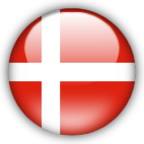|
- - -
Denmark
BASIC INFORMATION ABOUT THE GOVERNANCE OF SCIENCE IN DENMARK
Denmark has a history of more than 500 years of scientific research. The main goal is to continu-ously develop science and innovation in the globalized society.
The Danish Ministry of Science, Technology and Innovation is responsible for policies regarding research legislation, strategic research policy, technological foresight and mobility of researchers and industrial PhD. The Ministry's primary activities within this framework are carried out by the Danish Agency for Science, Technology and Innovation (DASTI), which is an institution under the Ministry.
The Danish government financially supports various kinds of research, which are mainly conduct-ed at universities, innovation environments and Approved Technological Service Institutes (ATS institutes). Many new initiatives aim to establish cooperation between the business sector and knowledge institutions and aim to increase the mobility of Danish as well as foreign researchers through public and private scholarships.
SUMMARY REVIEW OF SCIENCE & RESEARCH COOPERATION WITH BELARUS
The Agreement on Long-term Economical, Industrial and Technical Cooperation, concluded by Denmark and Belarus in 1994, constitutes the legal basis for S&T cooperation between two countries. Article 5 of the Agreement implies the creation of Intergovernmental Commission for programs of S&T cooperation forming and coordination.
Since 2001 through the Calls of Belarusian Republican Fund on Fundamental Research (BRFFR) 3 Belarus-Czech research projects bilaterally financed have been and are being fulfilled.
OPPORTUNITIES FOR SCIENCE & RESEARCH COOPERATION DENMARK - BELARUS
The Danish Ministry of Science, Technology and Innovation
The Ministry focuses on international collaboration in science and encourages employment and exchange of foreign scientists. In the last years many new initiatives have been launched by the Danish Government to encourage exchange and collaboration, including new institutions and information resources which are described in this section, and an initiative to offer a 25% income tax rate for scientists and key employees recruited abroad, for the first three years of their employment in Denmark.
The Danish Agency for Science, Technology and Innovation
This agency is an institution under the Ministry of Science, Technology and Innovation, which carries out the Ministry's policies and deals with issues such as researcher mobility across borders, public funding and commercialisation.
CIRIUS
This is an authority within the Danish Ministry of Education which aims to support the internation-alisation of education and training in Denmark.
Royal Danish Academy of Science
The academy was established in 1742 and aims to promote scientific understanding at the national as well as the international level.
The Danish Mobility Centre
The mobility centre is an initiative taken by the Ministry of Science, Technology and Innovation which offers foreign researchers information and personal counselling and refers to other contacts within the network once it has been established. Please consult http://www.workindenmark.com, which also links to databases with vacancies and scholarships (public and private) for scientists.
The Danish Councils for Independent Research (DCIR)
The Councils fund research activities in all scientific areas which are based on initiatives by researchers and which improve the quality and internationalization of Danish research. Amongst others, financial support can be given to foreign guest researchers (on senior research associate level) who participate in research and science projects in Denmark, and to Danish researchers who stay at a foreign research institution for more than one month.
The Danish Council for Strategic Research (DCSR)
The council supports strategic research in areas of societal relevance and in the form of three different allocation types. Collaboration with foreign researchers as well as the purchase of know-how from leading foreign research areas is encouraged as integrated parts in all three allocation types. The Council also supports interaction and exchange of research in the public and private sectors and provides advice in politically prioritised areas.
Universities
The eight universities in Denmark are obliged to function as a natural partner for businesses and public organizations at both national and international levels. Foreign researchers (including Belarusians) have the opportunity to be employed as guest researchers (max. 12 months employment).
The universities should also constitute a link between Denmark's cultural identity and heritage and European and international culture. Many Danish universities and research institutes have their own international cooperation offices, which may be contacted directly.
Industrial PhD initiative
This initiative was established to enhance research and development in the Danish business environment. The goal is to build personal networks between companies of Danish as well as foreign research institutions and universities.
Approved Technological Service Institutes (ATS)
The ATS Institutes are, among other things, as link between institutions in Denmark and abroad to Danish business and industry. The institutes are independent and ran as private enterprises. The competence of the institutes comprises mechanics, chemistry, biotechnology, microelectronics, management and organization, and the majority of their turnover comes from selling advice.
Innovation environments
The innovation environments are an initiative of the Ministry of Science, Technology and Innova¬tion, which offers innovative entrepreneurs and investors financial support, advice and knowledge during the pre-project phase.
Sector research
Sector research comprises a number of different public research institutions, placed under nine ministries. Sector research makes up 20% of public research is mainly problem oriented with a social aim. Its purpose is mostly to advice various government departments.

© National Academy of Sciences of Belarus, 2011
|
|


